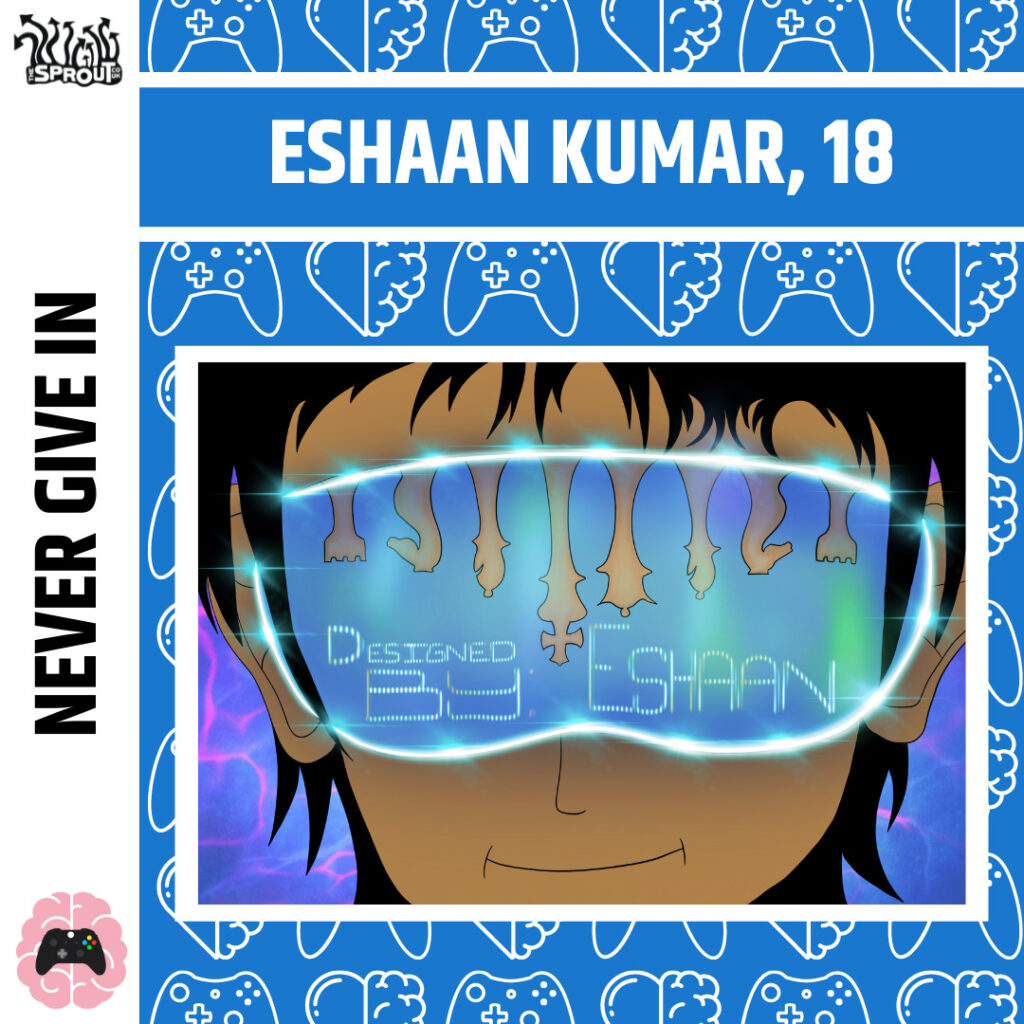Eshaan, an 18 year old from Cardiff believes that online gaming communities can be beneficial to mental wellbeing.
This article is part of the Never Give In campaign, where 21 young Cardiffians were commissioned to create a piece of art showing how gaming affects their mental health. This is the story of Eshaan, an 18-year-old artist who was part of the project.
How has gaming affected your mental health?
Reading your favourite book or binging a popular Netflix series are both great ways to escape from school, stress, and exams. However, playing video games enhances this experience, by adding a whole new level of interactivity to your entertainment. You may not be in control of the plot of a novella or film, but you are definitely in control of the outcomes in your game, making your overall experience more interactive and engaging.
Moreover, there is more to gaming than just playing games. Every hour, numerous individual creators live-stream gameplay on popular platforms such as Twitch, Discord, and YouTube Gaming, emphasising the robust community that gaming has helped shape in the past. These online communities are powerful tools to communicate with like-minded people with similar interests, which can be beneficial to one’s mental wellbeing.
Alongside the gameplay and streaming communities, there are several indie game developers, of all ages, creating their own games. This boosts both creativity and technical expertise; while allowing them to utilise these creative and technical skills to offer entertainment to the rest of the world. Ultimately, game developers end up creating amazing games that have the potential to boost the mental well-being of future generations.
What inspired you to create this artwork?
My artwork consists of a person wearing a virtual reality (VR) headset, representing the VR gaming platform. The headset is bordered by an illuminating streak of light, which is decorated with light flares. This is analogous to gaming’s potential to illuminate one’s mental wellbeing.
The 8 upside-down chess pieces are reflected on the headset to emphasise the significance of chess as it is underrepresented in the gaming context, and to illustrate its capability to strengthen one’s mental ability.
I used light pulses to illustrate my name, to assert the digital style, as it is projected onto the VR headset, just beneath the chess pieces. The subtle light reinforces the glassy, reflective properties of the surface of the VR headset. The vivid background resembles an outer-space nebula, implying that the diverse gaming platform is equipped with the capacity to immerse one into a wonderful atmosphere where they can foster their mental wellbeing.
Related Information
To find out more about the Never Give In campaign and see the incredible artwork from all of the other artists, click HERE.
Struggling with your mental health? Check out TheSprout’s Mental Health Information Page where you can find loads of local and national support services.
If you’re sharing our posts from the Never Give In campaign on social media, remember to use the #PositiveMentalGaming hashtag. Feel free to tag us so we can see what you’re sharing!

